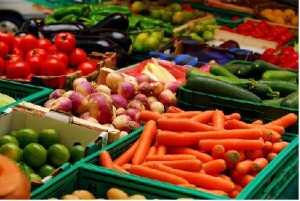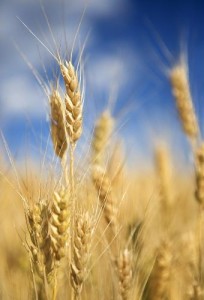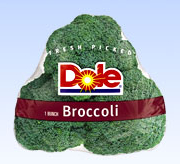 “And God said, ‘See, I have given you every herb that yields seed which is on the face of all the earth, and every tree whose fruit yields seed; to you it shall be for food’” (Genesis 1:29 NKJV). All of the fruits, vegetables, meats, and grains we consume have come from God. In order to have a healthy, balanced diet, we are to eat a wide variety of His foods daily. In our efforts to be healthy, organic foods have recently become popular. When you go to the grocery store, how do you decide between the fruit you have always purchased, and the fruit labeled “organic”? How do you know if something is organic? Is organic really healthier or more nutritious for you? I’ve done some research on this topic, and will discuss with you what I’ve found so that you can make an informed decision for yourself.
“And God said, ‘See, I have given you every herb that yields seed which is on the face of all the earth, and every tree whose fruit yields seed; to you it shall be for food’” (Genesis 1:29 NKJV). All of the fruits, vegetables, meats, and grains we consume have come from God. In order to have a healthy, balanced diet, we are to eat a wide variety of His foods daily. In our efforts to be healthy, organic foods have recently become popular. When you go to the grocery store, how do you decide between the fruit you have always purchased, and the fruit labeled “organic”? How do you know if something is organic? Is organic really healthier or more nutritious for you? I’ve done some research on this topic, and will discuss with you what I’ve found so that you can make an informed decision for yourself.
Organic basics
“Organic” refers to the way that fruits, vegetables, meats, grains, and dairy products are grown, processed, and handled. Organic farmers find different ways to fertilize, control pests, prevent diseases, and control weeds compared with conventional farmers. While a conventional farmer may use chemical insecticides to reduce the amount of pests and disease, an organic farmer will use beneficial animals, birds, insects, or set traps out to keep the pest population down in a more natural way. A conventional farmer will use chemical weed killer to manage weeds, while an organic farmer will use crop rotation, tilling, mulch, and pulling weeds by hand. Conventional farmers may use antibiotics, medications, and growth hormones to keep their livestock healthy, growing, and free of disease. An organic farmer will feed their livestock a well-balanced, healthy diet, maybe some organic feed, allow their livestock access to the outdoors, and keep their living spaces clean in order to prevent diseases.
Organic guidelines
The USDA regulates strict guidelines in how food is grown, processed, and handled to determine if the product is able to be called “organic.” A farmer must be USDA certified to grow organic foods, which means he or she has met the standards set up to grow organic. The USDA will only label a product “organic” if 95 percent of the food’s ingredients are organically grown. Watch labels and food ingredients, as foods can be labeled “made with organic ingredients,”  “all-natural,” “free-range,” “no antibiotics used,” and “grass fed/meadow raised.” This does not mean that the product is organic. Conventional foods use waxes and preservatives to make them last longer on the shelf and appear more attractive. Organic foods do not have these waxes and preservatives, so they may spoil faster and may have odd shapes.
“all-natural,” “free-range,” “no antibiotics used,” and “grass fed/meadow raised.” This does not mean that the product is organic. Conventional foods use waxes and preservatives to make them last longer on the shelf and appear more attractive. Organic foods do not have these waxes and preservatives, so they may spoil faster and may have odd shapes.
Many factors contribute when making the decision to buy organically grown or conventionally grown foods. Nutritionally, organic foods have not been found to be any more nutritious than conventional foods. The USDA does not claim that organic is more nutritious. The cost of organic foods is higher than conventional foods, mostly in part because of the increased work and cost that goes into growing and processing. Organic growing methods are labor intensive (hand pulling weeds instead of chemical weed killer), have strict government regulations, and may produce a lower yield. Some people say they can detect a difference in the taste of foods grown organically versus conventionally, while others say they cannot tell a difference at all. In quality and safety, organic and conventional produce must meet the same standards.
Your decision
Overall, the decision to buy organic or not should be studied and looked into before you decide. There are numerous issues surrounding this industry, and you should weigh their importance to you, personally. Regardless of whether they are organic or not, all fruits and vegetables should be washed thoroughly under running water to decrease the amount of dirt and bacteria, the outer layer of leafy green vegetables should be removed, and the fat should be trimmed off of meat, poultry, and fish. To receive the best taste and quality in foods, always purchase the freshest produce and produce that is currently in season. Taste is very subjective and personal, so try different things. Compare organic and conventional products and pick what tastes good to you. If freshness and quality are important to you, consider visiting a farmers’ market. Farmers’ markets allow you access to locally grown, farm-fresh produce. And since it is local, you are getting much fresher food than if you purchased it at a store––and usually at a better price. The USDA website has a link to find farmers’ markets in your area with state-wide farmers’ markets, contact information, and operating days and times. You can visit their website for more information. Visit USDA for more information on organically grown products, certification, safety standards and how the USDA regulates all agriculture. Let us remember, “…What God has cleansed you must not call common” (Acts 10:15 NKJV).
Food of the Month: Broccoli
 Broccoli is a nutrition powerhouse high in iron and vitamins A and C, rich in fiber and folate, and low in sodium. Broccoli is at its peak October through April, but is available year-round. Broccoli is best when it has a deep, strong green-purple color and tightly closed buds. Pieces that have begun to flower should be avoided, as this indicates the broccoli is old and tough. Store fresh, unwashed broccoli in a bag or airtight container in the crisper of the refrigerator for up to 4 days. Wash broccoli under running water, removing any outer leaves before eating. Broccoli can be eaten fresh, cooked, or steamed. Broccoli also comes frozen, and can be used in recipes such as pasta dishes, casseroles, soups, and as a side dish. One pound of fresh broccoli equals 2 cups chopped. One 10-ounce frozen package of broccoli equals 1 ½ cups chopped. One cup of chopped, cooked broccoli contains 43 calories, while 1 medium fresh stalk (148g) contains 45 calories. Broccoli is extremely versatile and incredibly nutritious, so as you are visiting your local farmers’ markets this spring, why not grab some and reap the benefits!
Broccoli is a nutrition powerhouse high in iron and vitamins A and C, rich in fiber and folate, and low in sodium. Broccoli is at its peak October through April, but is available year-round. Broccoli is best when it has a deep, strong green-purple color and tightly closed buds. Pieces that have begun to flower should be avoided, as this indicates the broccoli is old and tough. Store fresh, unwashed broccoli in a bag or airtight container in the crisper of the refrigerator for up to 4 days. Wash broccoli under running water, removing any outer leaves before eating. Broccoli can be eaten fresh, cooked, or steamed. Broccoli also comes frozen, and can be used in recipes such as pasta dishes, casseroles, soups, and as a side dish. One pound of fresh broccoli equals 2 cups chopped. One 10-ounce frozen package of broccoli equals 1 ½ cups chopped. One cup of chopped, cooked broccoli contains 43 calories, while 1 medium fresh stalk (148g) contains 45 calories. Broccoli is extremely versatile and incredibly nutritious, so as you are visiting your local farmers’ markets this spring, why not grab some and reap the benefits!
By Sherri Houmard
Good post and also very educational.